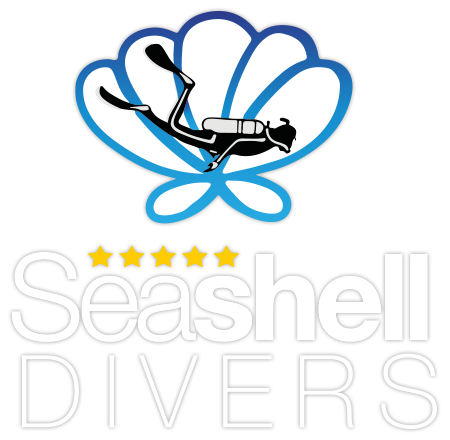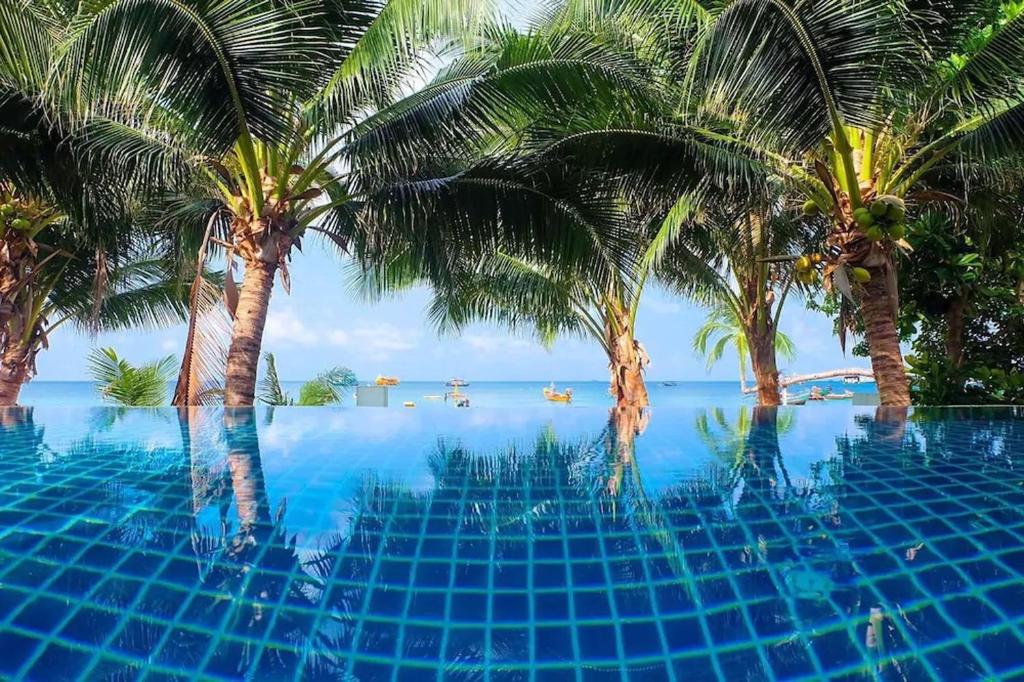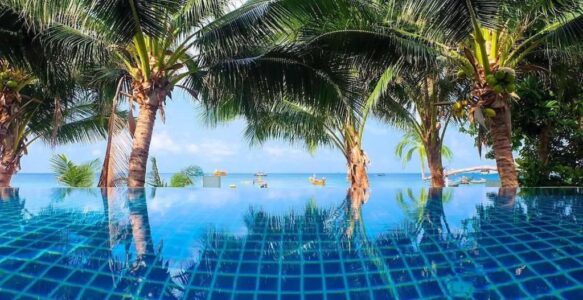Frequently Asked Questions:
If you have any further questions don’t hesitate to click the Whatsapp Button and speak to us directly.
You don’t need to be Michael Phelps to learn how to dive but there are some minimum requirements for safety reasons. You will need to complete a 200 meters swim (any stroke and it is not timed), you will also need to “float” for 10 minutes (this can be laid on your back, swimming or treading), you will also complete some snorkeling skills. The most important consideration is that you feel comfortable in the water. If you are not there yet then taking a couple of swim classes will improve your confidence and overall enjoyment.
Yes absolutely. One option is to dive using contact lenses – daily disposables are best in case you lose one during some of the mask skills which can happen from time to time. If you are not a contact lens wearer then a prescription mask is a great option. It’s a good idea to invest in one of your own, as at Seashell Divers we don’t have rental prescription masks.
Yes. The Open Water Diver course is designed to make it accessible to everyone, no matter what your preferred learning style is. The program is not just reading (although there is some), you will also be able to learn the theory through video presentations, practical demonstrations and practice and instructor presentations. If you are worried about “cramming”, the e-learning options allow you to study from home, at your own pace prior to going to the dive center.
It is not a pre-requisite to have a medical before scuba diving, however if you have a pre-existing medical condition which affects your ears, sinus, respiratory and circulatory systems, or have had recent surgery it is advisable to consult a Diving Physician before you leave home.
However, before starting to dive with us, you will go through a medical questionnaire. If you do answer Yes to any of the questions, you will have to see a Physician who will complete the necessary forms and give approval or not for you do scuba diving. We do have Physicians on the island that can assist you at the cost of or you can complete this form back home before arriving on Koh Tao.
To see the medical form, Click here
It is now obligatory on Koh Tao to be insured for any in-water activities from a dive boat (Scuba diving and Snorkeling). If you don’t have your own dive insurance, our Courses and Fun-dives prices do include dive insurance which would be valid for one month with Seashell Divers. If you have your own dive insurance, please contact us for price variations.
We have oxygen and a well-equipped medical kit on our boat and on land. There are several medical centers on Koh Tao and a government hospital on the island and also the Emergency Services (SSS). All our instructors are trained for CPR and first aid problems.
Yes. The hyperbaric chamber on Koh Tao is operated by the SSS Chamber Network. This international organization is recognized worldwide for its professionalism in providing the highest quality medical treatment for divers with pressure-related injuries or decompression sickness. The SSS network works closely with the government hospital and clinics and our local emergency services. The facility has Thai-speaking and western Dive Medical Technicians (DMTs), chamber operators, and a paramedic with over 30 years of experience – several of whom are also dive instructors. There is always a fully trained consulting physician on duty who has been accredited by the international association in hyperbaric and diving medicine.
Yes! Operating since 2002, we pride ourselves on one of the highest standards of safety with professional, personal, and friendly training.
We provide a wide range of Scuba Diving courses and guided dive trips with our experienced multilingual Instructors and Divemasters.
Our groups are small, offering you a quality, safe, and enjoyable diving experience.
Plus, the water is warm, the visibility is usually good all year round, there are minimal waves, and very few currents.
No! As long as you’re medically fit to dive, it’s likely you’ll have no concerns, provided that you follow your dive leader’s instructions, stay hydrated, and avoid drinking alcohol the evening before your dive trips.
This one is tricky to answer because it depends on how quickly you breathe your air. Most people have some nerves before their first dive which means beginners use their air faster than experienced divers. Other factors also affect air consumption; body makeup, depth, fitness, sea conditions, how effectively you use your fins and even water temperature! Your first dive should be a minimum of 20 minutes and on average first dives usually range from 25 – 40 minutes but some first timers manage a full hour. You won’t know until you try but one thing’s for sure, your air consumption will improve the more you dive.
The first 2 dives of the Open Water Diver program are a maximum of 12 meters and the 3rd and 4th dives are a maximum of 18 meters (or 12m for 10-11 year olds). Your dives should be more than 5 meters but you do not HAVE to go to 18 meters. Talk to your instructor if you are anxious about depth.
Firstly, it is highly unlikely that this will ever happen. During your Open Water Diver course you will be taught how to monitor your air supply frequently and you will learn that we never dive until the tank is empty, we always end the dive before air supply becomes an issue. You will also learn several different ways to deal with an “out of air situation” safely so in the unlikely event that you did run out you will have the skills required to manage the situation.
Yes, no problem! You may find that you have a one on one program with the instructor who will also be your buddy or you may form part of a group so you’ll meet new buddies. Divers are sociable and welcoming!
In some areas there are corals or plants which may sting if you brush up against them. Most marine animals do not attack and have stingers for defensive reasons only. Your instructor will explain to you how to interact with marine life in an observatory way which means you will experience some great encounters with many wonderful species. The golden rule is not to touch anything – most humans would be annoyed if something they didn’t know came into their environment and poked them!
If you have any further questions don’t hesitate to click the Whatsapp Button and speak to us directly.



